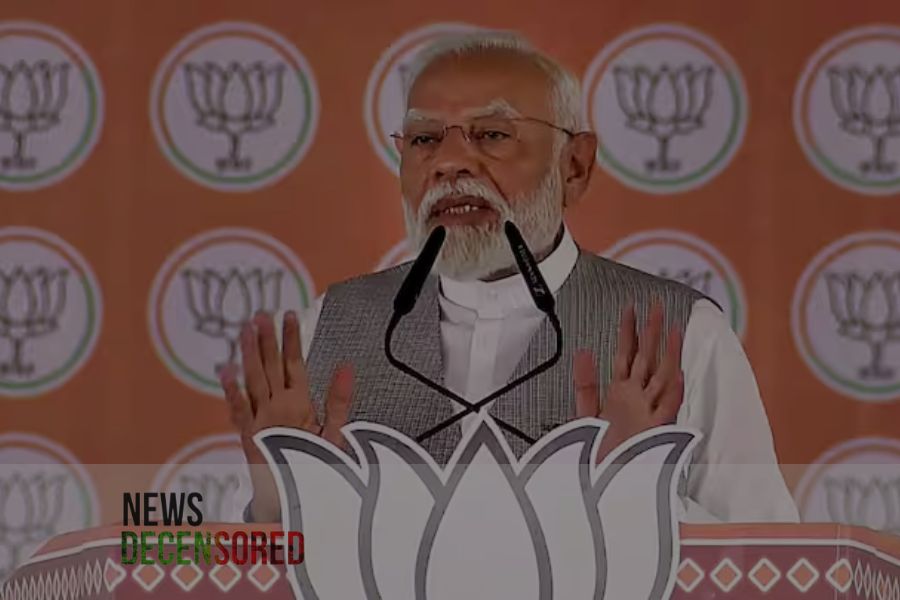In recent weeks, Indian Prime Minister Narendra Modi’s electoral rhetoric has taken a concerning turn, with a notable focus on targeting the Muslim community. As India’s massive national election progresses, Modi’s speeches have become increasingly direct and inflammatory, raising fears among experts and the Muslim populace alike regarding the potential instigation of violence against Muslims in India.
Speaking passionately to his supporters in Gujarat, Modi seized upon a favoured electoral theme, alleging collusion between opposition parties and Muslims to orchestrate a takeover of the nation through what he termed as “vote jihad.” This rhetoric, reminiscent of Islamophobic conspiracy theories, has grown more pronounced as the election advances, prompting alarm among analysts and even among Muslims who had previously supported the Prime Minister.
Modi’s remarks come amidst a charged political atmosphere, where every word carries weight and potential consequences. When a leader of the opposition Samajwadi Party called for Muslims to engage in a “vote jihad,” interpreting it as a call for increased Muslim voter participation, Modi swiftly denounced it as dangerous for democracy. However, critics argue that it is Modi’s own words that pose a threat, mainly as they target India’s substantial Muslim population.
In his campaign speeches, Modi has equated the Muslim community with “infiltrators” and propagated the myth of Muslims having higher fertility rates as part of a Hindu majoritarian narrative. Such remarks have sparked widespread criticism and accusations of hate speech, prompting citizens to call upon the Election Commission of India to take action.
Despite these criticisms, Modi has doubled down on his divisive rhetoric, alleging conspiracies involving the Congress party and Muslims to undermine Hindu interests. The BJP’s campaign has even resorted to publishing animated videos depicting Muslims as violent raiders, reinforcing Modi’s claims of impending Hindu wealth redistribution.
This strategy of religious polarisation is not new for Modi, whose political career has been marked by such tactics. However, the consequences of his inflammatory rhetoric are potentially dire, as it risks inflaming communal tensions and inciting violence against minority communities.
Critics argue that Modi’s divisive language not only undermines the principles of democracy but also fuels a dangerous narrative of victimhood among Hindus. This narrative, they warn, threatens to erode democratic institutions and exacerbate religious tensions in India.
Meanwhile, concerns grow over the vulnerability of Indian Muslims, even those who previously supported Modi. Recent incidents, such as the expulsion of a BJP leader for speaking out against Modi’s anti-Muslim remarks, highlight the risks faced by dissenting voices within the ruling party.
Modi’s focus on anti-Muslim sentiment is a calculated strategy to galvanise support amidst economic challenges and dwindling public confidence as the election unfolds. Despite these challenges, polls indicate Modi remains a formidable contender for re-election, underscoring the entrenched nature of religious polarisation in Indian politics.
In conclusion, Modi’s escalating anti-Muslim rhetoric represents a troubling trend in Indian politics, with far-reaching implications for communal harmony and democratic values. As the nation grapples with the consequences of such divisive rhetoric, the need for responsible leadership and inclusive governance has never been more urgent.















